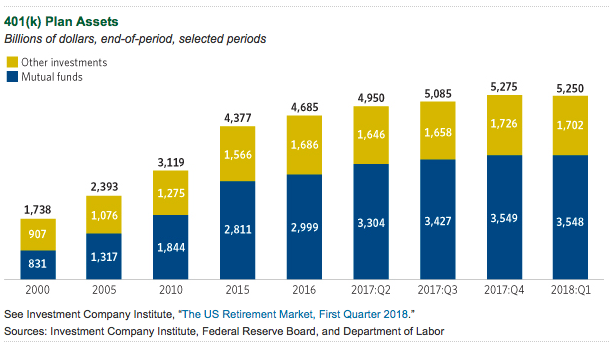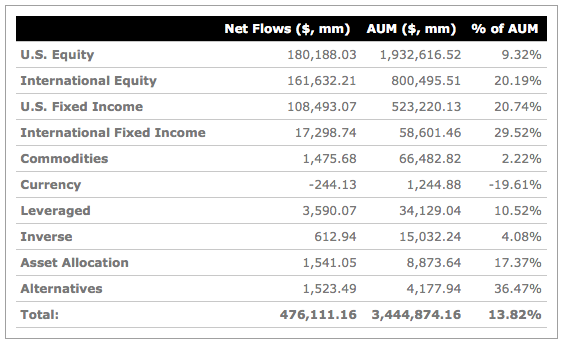
There is currently around $5.3 trillion invested in 401(k)s nationwide. The vast majority of that money is invested in mutual funds with the remaining going towards things, such as company stock, individual stocks and bonds, annuities, life insurance separate accounts and other odds and ends.

One product that is noticeably underrepresented in workplace retirement plans is ETFs. On the surface, that may seem like a bit of a curiosity. In the eyes of the average investor, ETFs have been become the investment equivalent of Spotify, while mutual funds are old cassette tapes. ETF net flows blew those of mutual funds away in 2017, continuing a trend that has been picking up steam for years.

Last year, ETFs pulled in nearly $500 billion, far outpacing the net flow activity of mutual funds and becoming the investment vehicle of choice for many investors. But the 401(k) marketplace still consists of almost entirely mutual funds and company stock. Why haven't ETFs begun proliferating the workplace retirement plan market in the same way that they've gained acceptance outside of it?
The simple answer is that they're not a good fit.
Click the button below to read the rest of this original article on Seeking Alpha.
If you enjoyed reading this article, be sure to subscribe to the site and receive the ETF Focus Weekly newsletter absolutely FREE! Just check out the box below!



